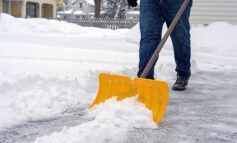Spring is here, which means it’s time to slip those green thumbs into some gardening gloves. And if you want to feel truly good about what you grow, consider upgrading your garden to be more planet-friendly. Here are some ideas to consider:
Grow Your Own Dinner

Grow the vegetables, herbs and flowers that you would normally purchase for your dinner and floral arrangements.
Local is more sustainable because it reduces the carbon footprint associated with transport. And you can’t get more local than your own backyard!
Encourage Pollination
Pollination is crucial for agricultural production and the health of the ecosystem. Unfortunately, many pollinating insects are highly susceptible to environmental changes and have in recent years, suffered major population decline.
You can help local pollinators thrive by planting a variety of native species of varying colors and shapes and reducing your use of pesticides.
Be Bird-Friendly
No garden is truly complete without regular visits from birds. Encourage flying visitors by installing a feeder and bird bath.
According to a study published in the Wilson Journal of Ornithology, billions of birds die annually worldwide from collisions with windows. So if you’re going to send out the mass invite to these beautiful creatures, don’t forget to make it hazard-free for their arrival.
Without affecting the appearance of your home, you can make your windows safer for birds by applying static-cling decals. For example, WindowAlert creates decals that look like frosted glass to people, but brilliantly reflect UV light for birds. To create a complete visual barrier, consider filling in the gaps between decals with UV Liquid dots which are invisible to humans, but visible to birds.
More information on preventing bird collisions can be found at www.WindowAlert.com.
Compost
By composting, you will not only reduce your home’s overall waste, you’ll also create a rich soil that can be used in your garden to cultivate plants naturally. Be careful what you compost, however. Sawdust from chemically treated wood, diseased plants, and even walnuts, when composted, can create soil that’s hazardous to both plants and people.
This spring, make your garden the envy of the neighborhood for more than just its beauty. With a few easy tweaks, you can reduce your family’s waste and create a safe haven for birds and pollinators.
— StatePoint





Leave a Reply